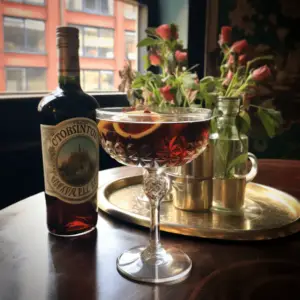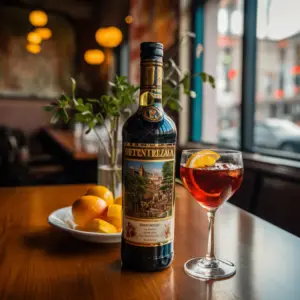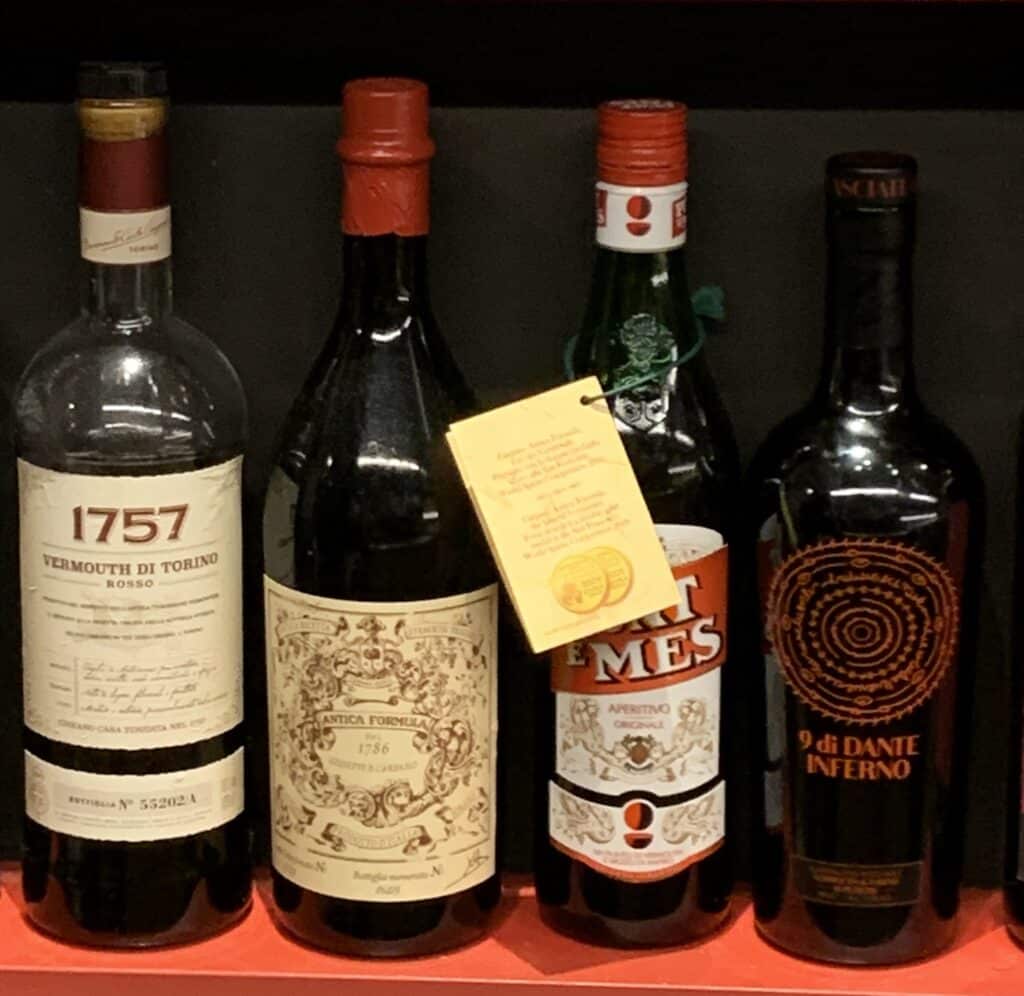Vermouth is now becoming recognized as a social leisure beverage, rather than a cutting agent or mixer in cocktails.
Vermouth, like everything else that has caught people’ attention, is changing. If you could name a lot of brands earlier, you can now name only a few popular ones, and the others have never appeared in your local convenience store.
This increase in vermouth brand development and creativity reflects its rebirth, appreciation, and demand in recent decades as a social lubricant, aperitif, digestif, and mixer.
The most recent and popular way to enjoy vermouth is straight, especially among the younger generation. To understand why, you must comprehend vermouth.
Table of Contents
What is vermouth?

Vermouth is an aromatized fortified wine. This means that the base component of vermouth is regular wine fortified to increase its alcohol content so compared to regular wine it has a higher alcohol content.
Fortification of the base wine can be done using a spirit which is the most common fortification agent but it can also be done using a brandy. Basically, the harder liquors can be used as fortifications to create vermouth.
Vermouth’s is however incomplete without aromatization and this is where vermouth gets its unique characteristics. Added to the fortified wine is any number or combination of botanicals in the form of spices, roots, barks, flowers, seeds, and herbs to give it added aroma, flavor, and depth.
The initial use of vermouth was as a medicinal elixir given the extensive use of herbal medicine in the age of its invention. It was widely believed and may have been an effective cure for stomach and digestive problems.
While it fell out of use as a medical fix it quickly gained favor as an aperitif and minimally as a digestif in the late 19th century.
At around this time, it also became a permanent member of cocktail recipes and it is not until the emergence of the millennials that this culture seemed to falter given the assertive and constantly shifting behavior and tastes of this particular generation.
Why is vermouth’s a great mixer?
Martinis and Manhattans are popular cocktails, yet few drinkers or fans know which vermouth goes into them.
Most people agree that it takes a lot of these cocktails to ruin them and make them drunk. Cocktails are heavily diluted spirits, whiskeys, or brandys that have been cut or mixed with vermouth to give revelers more time in social places and slow their decline into total inebriation.
Vermouth’s also adds flavor color and depth to your cocktail which makes it a superior mixer compared to most other mixers.
Can you drink vermouth straight?
Yes. It is evident vermouth is a rich drink well on its own given the extensive list of possible flavors that it comes in. Regular Vermouth exponentially delivers a world of tastes and flavors since unfortified wine does. Modern vermouth’s drinkers drink it straight for this reason, which has changed the production space. All vermouth makers today use secret recipes to compete and innovate, driven by the demand for high-quality vermouth’s.
Vermouth’s is still an alcoholic drink, but its alcoholic content is low, so many drinkers enjoy a light buzz while enjoying the depth and richness of a drink made with a wide range of spices and flavors, including:
- Ginger
- Cloves
- Coriander
- Juniper
- Chamomile
- Cardamom
- Cinnamon
- Quinine
- Citrus peel
- Citric acid
- Marjoram
- Hyssop
- Labdanum and a host of others
vermouth straight
Thier Vermouth is ideal for sipping with food during the day instead of tea, coffee, soft drinks, or water because it takes a lot or a low tolerance to get drunk.
It flavors other alcoholic drinks and can replace white and red wine in the kitchen if you like red vermouth.
Try different types to obtain the best of both worlds since vermouth adds powerful flavor to foods while adding the qualities of wine.
Vermouth’s marination of white meats like fish, poultry, and hog, which absorb foreign flavors, is much better.
Soak chicken in your favorite vermouth’s and allow the chicken to absorb the spices overnight in the refrigerator. This is sure to be a sumptuous outcome.
Does vermouth go bad?

Yes. Once opened, vermouth’s does not last very long. While it does not oxidize as fast as regular wine due to the fortifying agents, it will begin to deteriorate and the rich flavor will slowly dissipate.
Some brands will last longer than others but none have the lifespan of spirits or whiskeys.
The best way to prevent it from losing its flavor profile is to refrigerate it after opening it. This significantly slows down the deterioration of vermouth but it will not stop it. Within approximately four months, at most six, your refrigerated vermouth will taste nothing like what you had originally.
If you cannot exhaust entire bottles within this time, then consider purchasing many smaller units instead.
Vermouth’s that has gone flat, however, is still safe for cooking and produces exquisite gravies and soups so do not dispose of it if you have any that has lost its pep.


